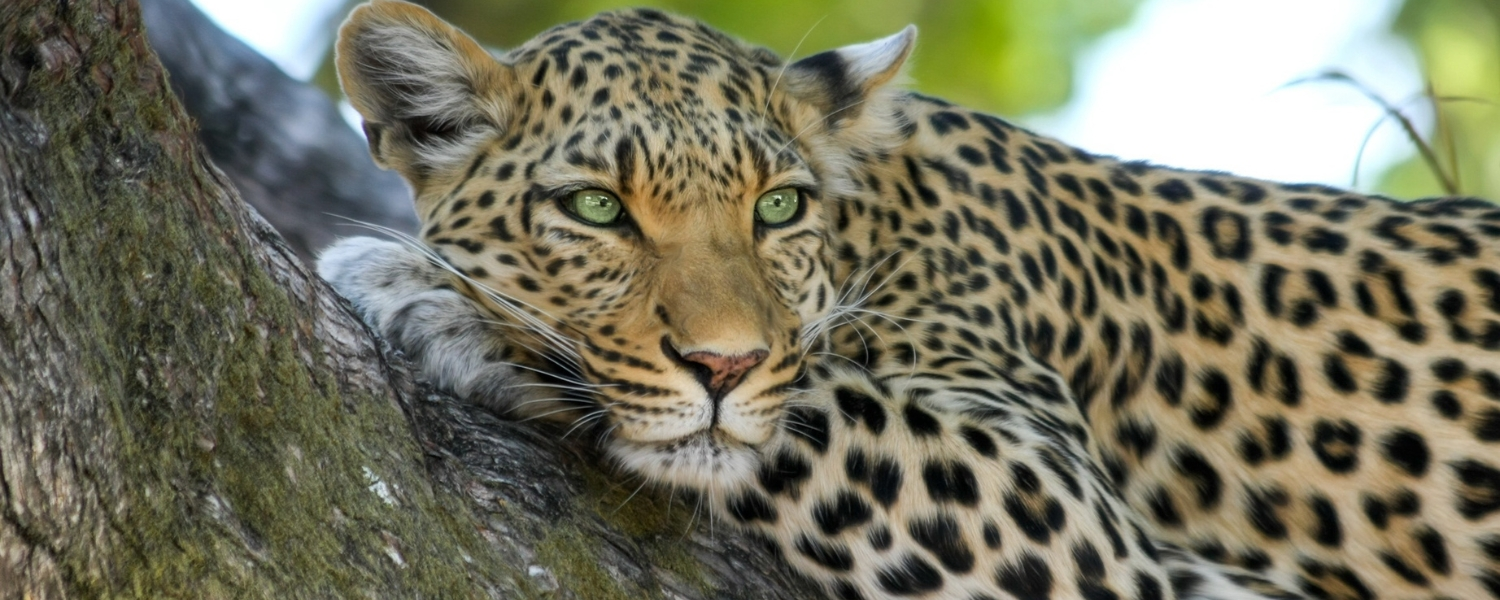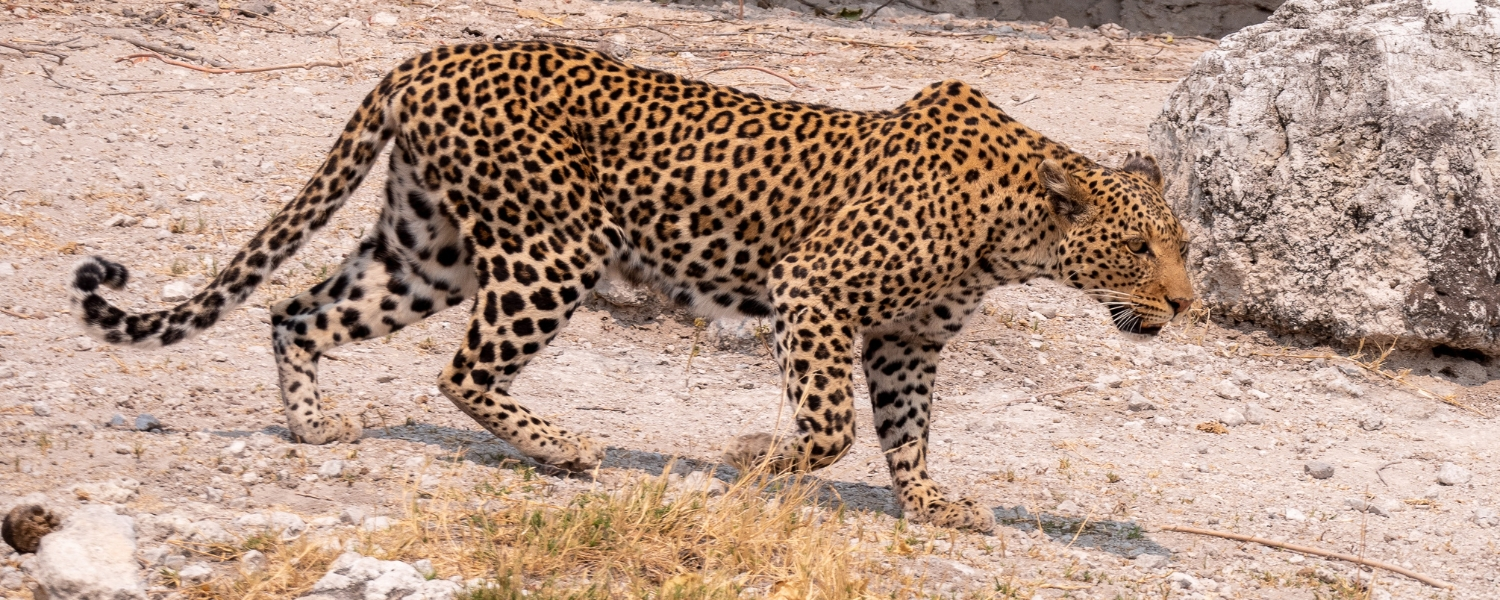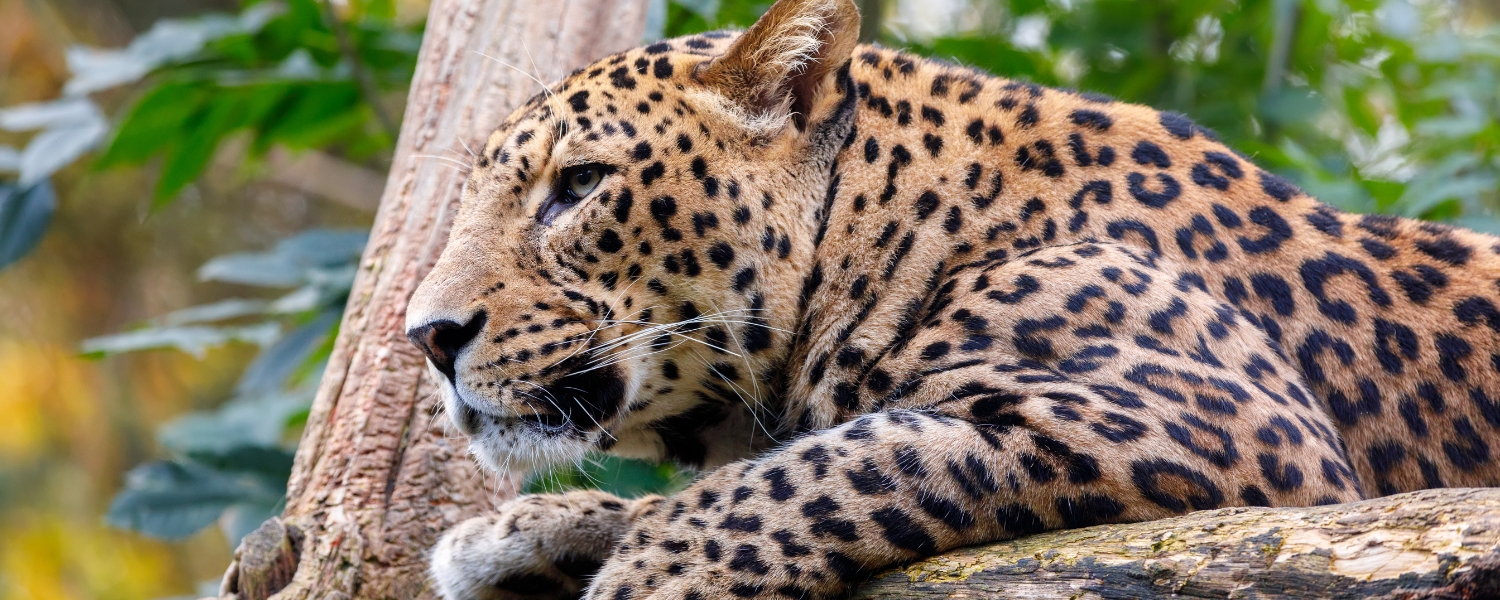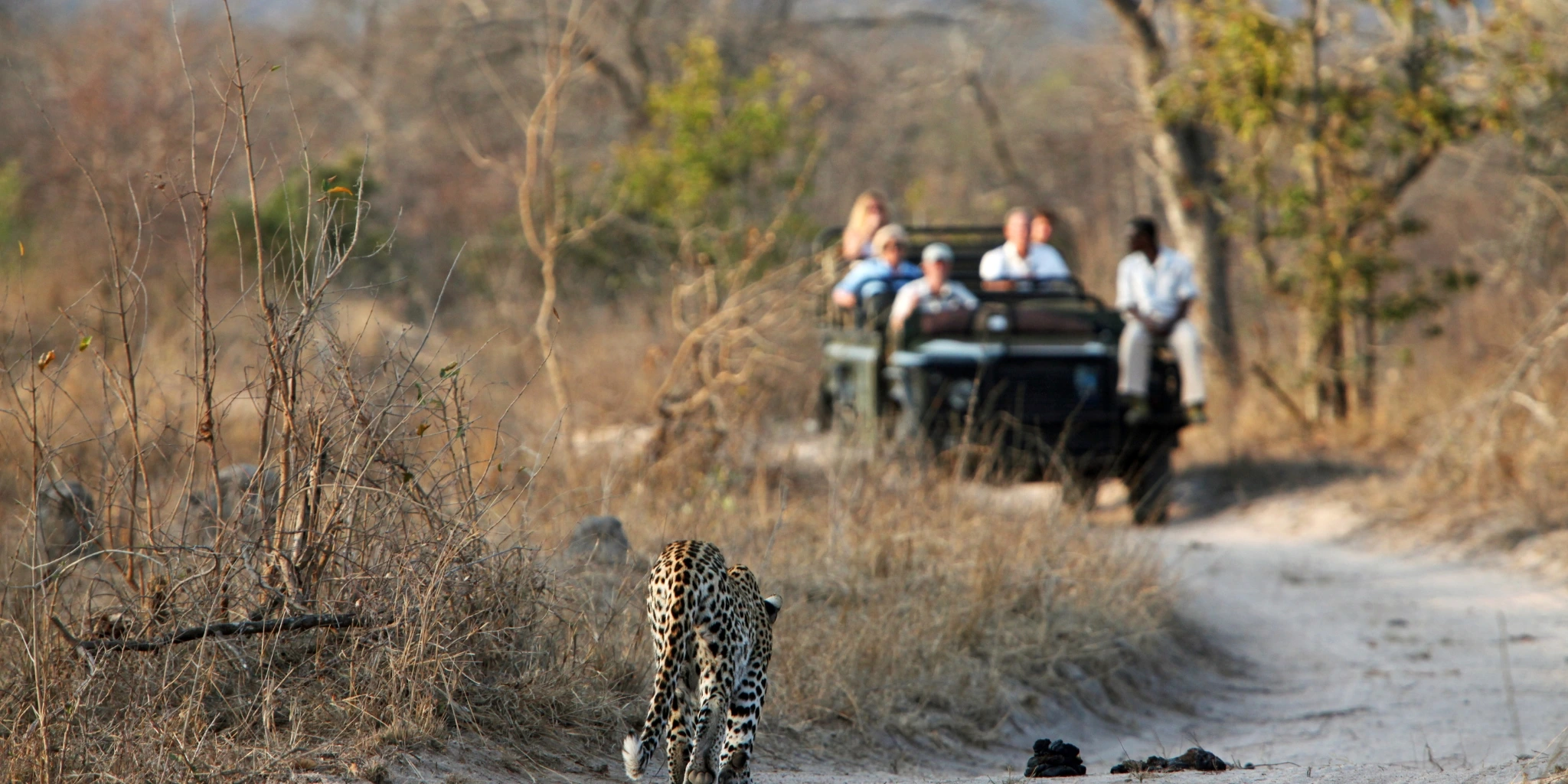The Jhalana Leopard Safari, offers a unique and great wildlife adventure that has rapidly become one of the best things to do in Jaipur, India.
Located just a short distance from the Jaipur city, the Jhalana Leopard Safari Park provides an immersive experience where visitors can encounter the leopard in its natural habitat.
Known for its high leopard sightings, this safari is a prime destination for wildlife, photographers and nature lovers.
The park spans over 20 square KM and is home to over 30 leopards, making it one of the best places for a leopard safari. In addition to leopards, the park is famous for diverse wildlife such as hyenas, deer, and birds, adding layers to your safari experience.
Not only is it one of the top things to do in Jaipur, but it also presents an opportunity to appreciate the rich wildlife of Rajasthan.
The accessibility of Jhalana Leopard Safari, with its affordable pricing and easy online booking options, makes it a must-visit destination for anyone exploring the Pink City.
1. Experience at Jhalana Leopard Safari:

The Jhalana Leopard Reserve in Jaipur offers a thrilling open-jeep safari that guarantees an unforgettable experience with nature.
This adventure is perfect for small groups of up to six people – making it an ideal activity for families, friends, or wildlife lovers.
One of the key highlights of the Jhalana Leopard Safari Jaipur is the assurance of spotting leopards in their natural habitat.
The Jhalana Leopard Safari Park is one of Jaipur’s most popular wildlife experiences.
The park’s well-maintained ecosystem and dedicated conservation efforts make it a heaven for its wildlife.
For photography lovers, the Jhalana Leopard Safari Park is a dream destination.
The open jeeps provide a view of the surroundings, allowing photographers to capture leopards and other wildlife shots.
The possibilities are endless, from close-up shots of leopards to breathtaking views of the park’s landscape.
The Jaipur leopard safari is also home to various bird species and other animals, adding more diversity to the photography experience.
The Jhalana Leopard Safari is not just about leopards. It’s a chance to immerse yourself in the beauty of Jaipur’s wilderness.
The jungle safari in Jaipur is well-organised schedule ensures visitors can relax and enjoy the journey without inconvenience.
With the guidance of safari experts and drivers, every trip is safe and educational.
Every visitor leaves the Jhalana Leopard Safari with cherished memories of wildlife.
The combination of leopard sightings, the joy of exploring the Jungle in an open jeep and the chance to connect with nature makes it one of the best things to do in Jaipur.
Whether you’re a resident or a tourist, the Jhalana Leopard Safari Jaipur promises an experience that will stay with you long after you leave.
Booking your safari in advance is recommended to make the most of your visit.
The Jhalana Leopard Safari price is reasonable, considering the exceptional experience it offers.
Visitors can choose from morning or evening slots, which provide unique opportunities to explore the Jaipur leopard safari.
The morning safari is recommended for those looking to capture the best light for photography.
In summary, the Jhalana Leopard Safari Jaipur is an adventure.
Whether you’re looking to spot a leopard, the joy of photographing wildlife, or simply a peaceful escape into nature, this safari delivers on all fronts.
Don’t miss the chance to have an incredible journey and create memories that last a lifetime.
2. Best Time to Visit Jhalana Leopard Safari:

The Jhalana Safari Jaipur is a great experience that allows you to witness the leopards in their home.
Choosing the right time to come on this adventure is essential to make the most of your visit.
a. Optimal Months: October to March
The cooler months from October to March are the best time for Jhalana Leopard Safari.
Jaipur enjoys pleasant weather during this period, which makes the safari experience comfortable and enjoyable.
The cooler temperatures also encourage wildlife activity, increasing the chances of spotting leopards and other animals in the park.
b. Ideal Time of Day: Early Mornings and Late Afternoons
The early morning and late afternoon safari slots are ideal for leopard safari in Jaipur.
These are the times when animals are most active, enhancing your likelihood of seeing the leopards in Jhalana.
The soft light during these hours also provides excellent conditions for photography, making it perfect for capturing memorable moments during your safari.
c. Challenges During the Monsoon Season
While the Jhalana Leopard Safari remains operational during the monsoon season, it may not be the best time to visit.
The park’s accessibility can be limited due to heavy rains, which reduce the chances of sightings.
Additionally, the field of Jaipur leopard safari may become muddy, which could affect the overall safari experience.
Choosing the right season and time of day ensures a rewarding leopard safari in Jaipur.
The cooler months offer a higher probability of spotting leopards and a more pleasant environment for exploring the jungle safari in Jaipur.
The Jhalana Leopard Safari Jaipur is an unforgettable adventure and visiting during the recommended months enhances its charm.
3. Jhalana Leopard Reserve Tips and Guidelines:

Planning your Jhalana Leopard Safari requires careful preparation to ensure a smooth and enjoyable experience.
To book your safari in the Jhalana Leopard Safari Park, you can call or WhatsApp at 9001846629/9664082479, email at [email protected] or fill out the booking form.
Securing your slot early is recommended, as the Jhalana Safari permits are issued on a first-come, first-served basis and can be booked up to 90 days in advance.
a. Remember a few essential tips before heading to the Jhalana Leopard Safari Jaipur.
Each safari jeep accommodates a maximum of six individuals, so group sizes beyond six require multiple bookings.
b. Including a guide, the jeep can take only up to five visitors.
c. Ensure to carry the same ID proof used during the Jhalana Safari booking, as it is mandatory for all guests.
Foreign tourists must provide passport details when making a reservation.
d. The full fee must be paid in advance to confirm your Jhalana Leopard Safari.
Refunds are available within one hour of payment if the booking isn’t confirmed.
However, approved bookings are non-transferable, non-exchangeable, and non-refundable.
e. Ensure you arrive at the boarding point at least 25 minutes before the safari time to avoid delays.
Any fee changes or incomplete occupancy will require visitors to pay the difference.
f. It’s essential to note that the park may close without prior notice, so staying informed is crucial.
g. For a seamless experience, plan and follow these guidelines to enjoy a memorable journey at the Jhalana Leopard Safari Park.
The rich wildlife at the Jhalana Safari Jaipur awaits those who prepare well.
4. Things to do along with Jhalna leopard safari:

Combining cultural landmarks with wildlife adventures is a must when you are coming to the Pink City, Jaipur.
Start your journey with iconic attractions like Hawa Mahal, City Palace, and Jantar Mantar—are indeed, some of the best things to do in Jaipur.
Visiting the Jhalana Leopard Reserve for nature Freak adds a unique edge to your trip.
The Jhalana Leopard Safari Park provides a happy escape into Jaipur’s wild side, making it one of the best things to do in Jaipur, India.
For more wild adventure, the Amagarh Leopard Safari is another exciting option to experience the beauty of Rajasthan.
These safaris create unforgettable memories while connecting you with Jaipur’s rich biodiversity.
Don’t forget to check Jhalana safari timings for a seamless journey.
Whether it is spotting the leopard in Jaipur or wandering through Jaipur’s historic wonders, every moment here promises excitement.
Conclusion:
The Jhalana Leopard Safari is one of Jaipur’s best wildlife experiences, offering an unforgettable adventure that combines nature’s raw beauty with the thrill of spotting leopards.
Whether you opt for a morning or evening safari, the experience promises to be equally rewarding.
The Jhalana Safari Jaipur offers opportunities for wildlife photography, with its open jeep safari assuring views of the park’s creatures.
For those who are looking for further excitement, the nearby Amagarh Leopard Safari offers another exciting opportunity to witness leopards in the jungle.
The ease of Jhalana Safari booking, the affordable price, and the convenient safari timings make it accessible to a wide range of visitors.
The park’s proximity to Jaipur ensures you don’t need to travel far to enjoy this one-of-a-kind experience, making it an essential activity for both nature lovers and tourists.
Aside from the leopard sightings, visitors can explore the park’s diverse flora and fauna, ensuring that the Jhalana Leopard Safari is about leopards and connecting with nature.
As one of the top things to do in Jaipur, it promises a perfect balance of excitement and relaxation, allowing you to immerse yourself in the natural beauty of Rajasthan’s wild.
If you are in Jaipur, this safari should be on your list of things to do, offering adventure, wildlife exploration, and the thrill of leopard sightings.
Don’t miss the chance to experience one of the best jungle safaris in Jaipur, where the wild meets calmness. in a way that’s hard to forget.


